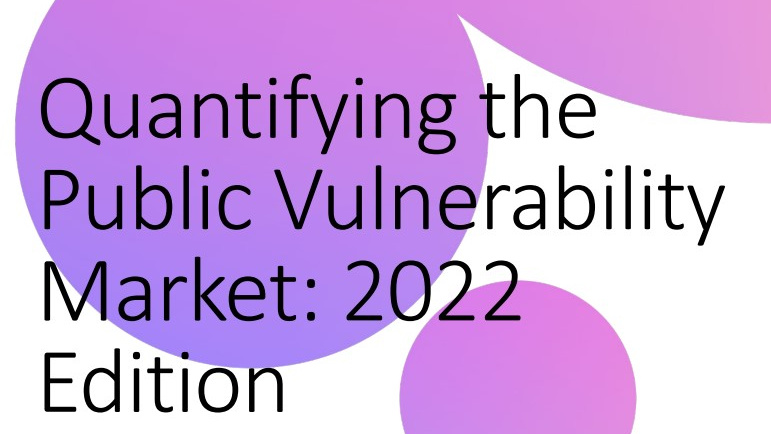Growing 'anti-vaxx' online debate pinned on Russian botnets
Sophisticated bots and trolls are ‘playing both sides’ of the debate to spread public health myths


Russian bots are engaged in a campaign to spread health-related myths on Twitter - by promoting the views of vaccine sceptics and posing as users concerned with public health.
Unlike conventional botnets, which are used to spread malware, "content polluters" - likely originating in Russia - use similar methods to promote conspiracy theories and myths around vaccination, according to a study in the American Journal of Public Health (AJPH).
Researchers examined the frequency of anti-vaxx messages posted by humans and suspected bots between 2014 and 2017, and analysed the content posted on Twitter hashtags associated with Russian troll activity.
The study, titled 'Weaponised Health Communication', found that by confronting vaccine sceptics directly, bots were able to legitimise their position in the public discourse - and artificially inflate the anti-vaccine debate.
"Unlike troll accounts, content polluters (ie, disseminators of malware, unsolicited commercial content, and other disruptive material that typically violates Twitter's terms of service) post anti-vaccine messages 75% more often than does the average non-bot Twitter user," the researchers concluded.
"Thus, it is unclear to what extent their promotion of vaccine-related content is driven by true anti-vaccine sentiment or is used as a tactic designed to drive up click-through rates by propagating motivational content ("clickbait")."
Vaccines have long been considered safe and risk-free according to the overwhelming medical and scientific consensus. But myths and scare campaigns around vaccine usage at different points in time have led to the needless spread of disease and public health issues.
Sign up today and you will receive a free copy of our Future Focus 2025 report - the leading guidance on AI, cybersecurity and other IT challenges as per 700+ senior executives
A recent resurgence of Measles across Europe, for instance, with 41,000 cases recorded in the six first months of 2018 - more than double the whole of last year - has been tied with false claims around vaccinations which have hindered parents from immunising their children.
The study found that Russian trolls and Twitter bots post content about vaccinations, both positive and negative, at significantly higher rates than the average user, indicating the aim was not to promote either side of the debate - but t raise the prominence of the debate itself.
Examples of myths propagated include the idea that vaccines can cause fatal side effects, that a secret government database of vaccine-damaged children exists, and that most diseases vaccines target are relatively harmless - making vaccines a needless risk.
"The highest proportion of anti-vaccine content is generated by accounts with unknown or intermediate bot scores," the researchers continued.
"Although we speculate that this set of accounts contains more sophisticated bots, trolls, and cyborgs, their provenance is ultimately unknown.
"Therefore, beyond attempting to prevent bots from spreading messages over social media, public health practitioners should focus on combating the messages themselves while not feeding the trolls."
Botnets are conventionally deployed to spread malware, and are becoming increasingly sophisticated as cyber security specialists attempt to combat them. Duo Security, for instance, earlier this month revealed the existence of a 15,000-strong botnet structured in a three-tiered hierarchy which promoted a fake cryptocurrency giveaway; evolving over time to remain undetected.

Keumars Afifi-Sabet is a writer and editor that specialises in public sector, cyber security, and cloud computing. He first joined ITPro as a staff writer in April 2018 and eventually became its Features Editor. Although a regular contributor to other tech sites in the past, these days you will find Keumars on LiveScience, where he runs its Technology section.
-
 Former Google engineer convicted after stealing AI, supercomputing secrets
Former Google engineer convicted after stealing AI, supercomputing secretsNews Linwei Ding told Chinese investors he could build a world-class supercomputer
-
 OpenAI sets February retirement date for popular GPT-4o model
OpenAI sets February retirement date for popular GPT-4o modelNews OpenAI has confirmed plans to retire its popular GPT-4o model in February, citing increased uptake of its newer GPT-5 model range.
-
 Europol hails triple takedown with Rhadamanthys, VenomRAT, and Elysium sting operations
Europol hails triple takedown with Rhadamanthys, VenomRAT, and Elysium sting operationsNews The Rhadamanthys infostealer operation is one of the latest victims of Europol's Operation Endgame, with more than a thousand servers taken down
-
 Foreign states ramp up cyberattacks on EU with AI-driven phishing and DDoS campaigns
Foreign states ramp up cyberattacks on EU with AI-driven phishing and DDoS campaignsNews ENISA warns of hacktivism, especially through DDoS attacks
-
 A new 'top-tier' Chinese espionage group is stealing sensitive data
A new 'top-tier' Chinese espionage group is stealing sensitive datanews Phantom Taurus has been operating for two years and uses custom-built malware to maintain long-term access to critical targets
-
 ‘States don’t do hacking for fun’: NCSC expert urges businesses to follow geopolitics as defensive strategy
‘States don’t do hacking for fun’: NCSC expert urges businesses to follow geopolitics as defensive strategyNews Paul Chichester, director of operations at the UK’s National Cyber Security Centre, urged businesses to keep closer tabs on geopolitical events to gauge potential cyber threats.
-
 Seized database helps Europol snare botnet customers in ‘Operation Endgame’ follow-up sting
Seized database helps Europol snare botnet customers in ‘Operation Endgame’ follow-up stingNews Europol has detained several people believed to be involved in a botnet operation as part of a follow-up to a major takedown last year.
-
 Three ways to evolve your security operations
Three ways to evolve your security operationsWhitepaper Why current approaches aren’t working
-
 Beat cyber criminals at their own game
Beat cyber criminals at their own gameWhitepaper A guide to winning the vulnerability race and protection your organization
-
 Quantifying the public vulnerability market: 2022 edition
Quantifying the public vulnerability market: 2022 editionWhitepaper An analysis of vulnerability disclosures, impact severity, and product analysis